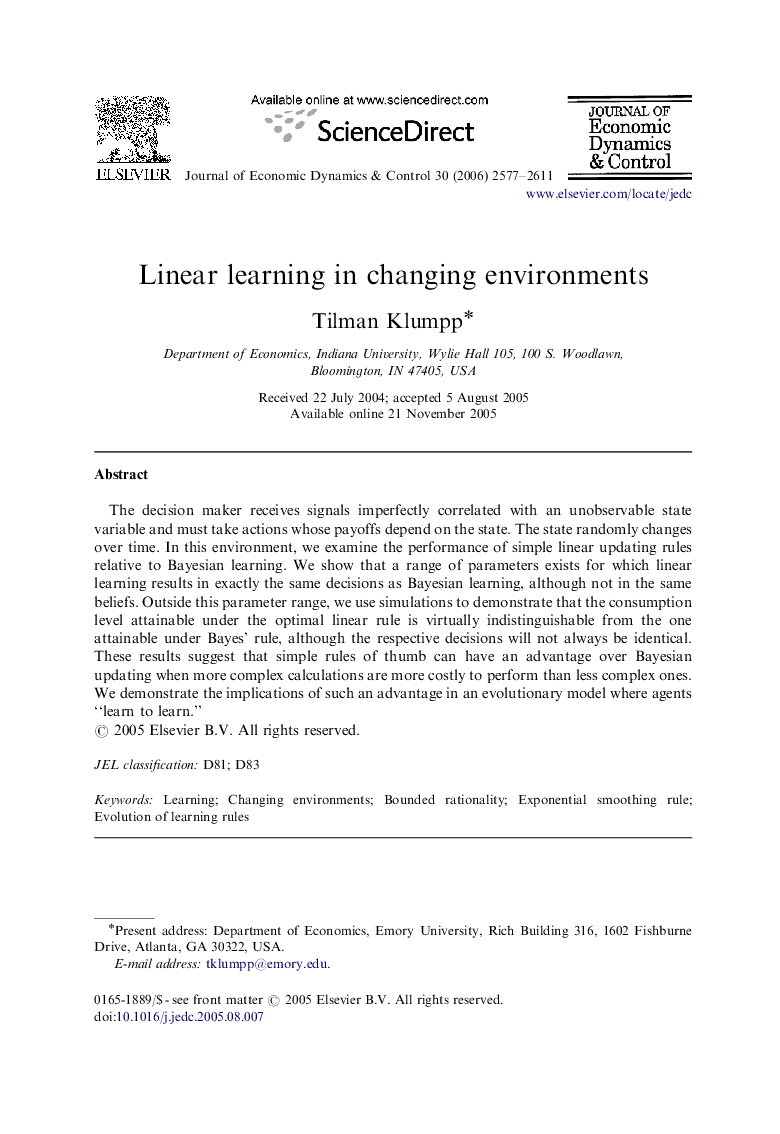| Article ID | Journal | Published Year | Pages | File Type |
|---|---|---|---|---|
| 5099946 | Journal of Economic Dynamics and Control | 2006 | 35 Pages |
Abstract
The decision maker receives signals imperfectly correlated with an unobservable state variable and must take actions whose payoffs depend on the state. The state randomly changes over time. In this environment, we examine the performance of simple linear updating rules relative to Bayesian learning. We show that a range of parameters exists for which linear learning results in exactly the same decisions as Bayesian learning, although not in the same beliefs. Outside this parameter range, we use simulations to demonstrate that the consumption level attainable under the optimal linear rule is virtually indistinguishable from the one attainable under Bayes' rule, although the respective decisions will not always be identical. These results suggest that simple rules of thumb can have an advantage over Bayesian updating when more complex calculations are more costly to perform than less complex ones. We demonstrate the implications of such an advantage in an evolutionary model where agents “learn to learn.”
Related Topics
Physical Sciences and Engineering
Mathematics
Control and Optimization
Authors
Tilman Klumpp,
